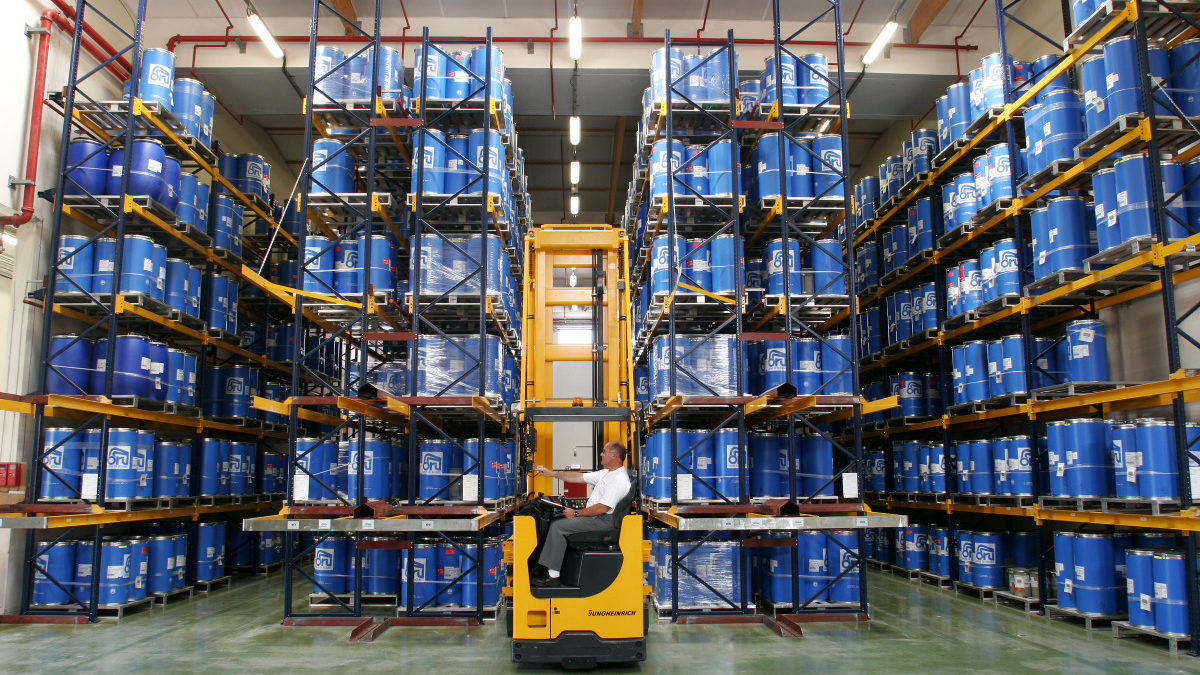

Site Servier France Bolbec
Stable manufacturing and supply chains in Europe are of essential importance to the day-to-day operations of pharmaceutical companies such as Servier and more critically to the health and well-being of Europeans. During the last few years, due to a variety of reasons, we have been exposed to the numerous vulnerabilities of our medical value chains, leading sometimes to disruptions and delays of essential life-saving medicine shipments to patients.
One of the 4 pillars in the upcoming revision of the general pharmaceutical legislation by the European Commission is the aim to diversify and secure supply chains and address medicine shortages. As Servier, an independent international pharmaceutical company with a significant manufacturing footprint in Europe, we strongly support these efforts and believe that any newly introduced and revised measures must be seen through the perspective of optimisation, flexibility and dialogue.
Optimisation
One of the principles floated around to ensure security of supply is to diversify the provision of raw or packaging materials to at least two different suppliers. While Servier has made significant efforts to maintain a European supply chain by, for example, currently producing 98 percent of its active ingredients of synthetized brand-name medicines in France, changing or adding suppliers to dual source ingredients and materials remains very difficult in the current framework due to multiple factors. Namely, there are major difficulties in finding suppliers with the right technological manufacturing (especially for biotechnology) and a time-consuming and burdensome administrative process, even when a suitable supplier has been found.
Hence, due to the unique and complex sourcing, manufacturing and distribution process of each medicine, there should be a case-by-case approach, with a focus on Shortage Prevention Plans (SPPs) for critical products instead of any general obligations for dual sourcing.
On the other hand, supply chains are becoming more and more digitalised, presenting immense opportunities for pharmaceutical supply chains to be made more resilient. To make full use of the abundance of data collected, we must move towards an end-to-end, transparent model of supply chains, which are based on a digital track and trace system. Such transparency would help ensure that any potential issue that could cause a shortage is identified as soon as possible, a clear framework on who is responsible and has access to the data collected should be developed.
Flexibility
The Covid-19 pandemic has made apparent the need to rapidly stockpile critical medicines to respond to a public health emergency, as well as to establish different rules to ensure safety of supply during crises. To achieve this, the European Commission is considering setting up mandatory (additional) stockpiling by pharmaceutical companies of full or partially finished critical medicines. However, solely introducing additional stockpiling requirements to hold stocks at national level would fall short of addressing current supply chain issues as it would continue to restrict one of the main tools we have to reduce the likeliness of shortages in the EU – the flexibility of pharmaceutical companies to reallocate products within Europe in light of a possible shortage.
Instead, there should be a three-step approach. First, clear criteria to identify “critical” medicines should be provided to identify easily which medicine needs additional stockpiling. Second, EU-level harmonisation of stockpiling of unfinished products is needed to grant pharmaceutical companies the interoperability of easily sending medicines from one country to another to prevent shortages. Third, to further increase the flexibility, making the most of regulatory innovations such as the adoption of the electronic product information should be considered.
Dialogue
In addition, we believe that a key aspect in helping reduce shortages in Europe would be to increase multistakeholder dialogue, specifically when it comes to the prevention and notification of shortages. In this regard, the European Union has given a mandate to the European Medicines Agency to monitor the risk of shortages (Regulation (EU) 2022/123) and is also considering extending the obligation for manufacturers to notify shortages of a medicine to 6 months in advance.
However, introducing this type of shortage notification obligation will not necessarily help prevent shortages, because of the inherent difficulty of pharmaceutical companies foreseeing shortages ‘on time’. On the contrary, it could even create unintended consequences such as medicine hoarding.
To remedy this, there should be a harmonisation of existing national procedures of shortage notifications to allow pharmaceutical companies to maximise their efforts to address the shortage at hand rather than spending resources to fulfil the asymmetric shortage notification requirements of each Member State. On top of that, there should be more dynamic oversight on stock management in collaboration with manufacturers, preferably through a competent European body such as the EMVO.
Overall,
the opportunity to improve the resilience of medicinal value chains for the benefit of European patients is something that should not be overlooked. With the help of the above mentioned solutions, we believe that it is absolutely key to act now in order to minimize the possibility of shortages, as the well-being of so many European citizens that rely on the variety of innovative life-saving medicines depends on it.
You can find the complete list of Servier’s proposals for building more resilient supply chains in Europe here.
